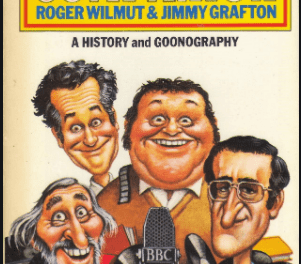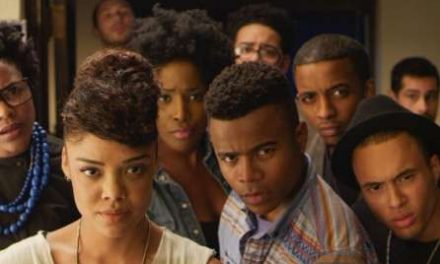By dint of their genre, medical series often deal with matters of morality and ethics. This in part lends itself to storylines about playing ‘god(s)’ which can then position the medical personnel as divine entities who are capable of both positive and negative acts (Jacobs 2003). But medical series can also mimic detective series, as House (Fox 2004-2012), an iteration of Sherlock Holmes, most certainly does. Smit (2013) points out that the aesthetics of House often mimic that of CSI, something unsurprising as the series was pitched by creator David Shore as being like CSI with the germs as villains (Ibid). It is in the overlapping space between these two genres that the series carved out its distinctive niche.
Though the series primarily focuses upon the trials and tribulations of diagnostician and vicodin-addict Dr Greg House (Hugh Laurie), his supporting characters often have prominent storylines of their own. In this case, 6.4, it is House’s subordinate Dr Robert Chase (Jesse Spencer) who takes centre stage. A ‘tyrant’ (as expressed in the episode title) of an unnamed, ostensibly fictitious African country is taken ill on a visit to the US.[1] President Dibala (James Earl Jones) is put into the care of House’s team and they attempt to determine his ailment. This aspect is almost incidental to the plot, however, as over the course of the diagnosis Dibala’s debated genocide (which he refers to as a guerrilla war) and use of teenage soldiers (to which he admits fault) quickly become the main foci of the episode. While medical dramas often engage in moral debates, in this particular instance the morality in question is whether or not killing a presumed genocidal tyrant is more moral than saving his life. After meeting a refugee who was a former child soldier of Dibala’s and whose assassination attempt is thwarted, Chase ultimately decides that murder is the more moral choice and kills Dibala by arranging for him to get the wrong treatment.
There are a number of issues with this plot line (over and above the obvious of Chase committing premeditated murder). Chase is diegetically stated to be a lapsed Catholic who had spent a year as a seminarian before temptations of the flesh (i.e., sleeping with the wife of a member of the grounds staff) led him to leave the seminary. Though occasionally offering to pray with religious patients and, after committing this murder, going to confession, Chase’s uneasy relationship with religion is a frequently used trait in his character development across the series. Thus positioning him as a martyr figure whose moral injury leads to self-destructive tendencies (alcohol and casual rather than supportive relationships) can be read as mimicking both a fallen Christ figure as well as paralleling House himself.[2] This can also, however, be read not just as a saviour narrative but as a white saviour narrative, which is where things can get more complicated.[3] This is because Chase is Australian, an explicitly postcolonial country with a history of oppressing Indigeneous groups and attempting cultural genocide through so-called ‘residential schools.’ This first brings us to Hall (1995) who argues that while many countries are postcolonial they are not all postcolonial in the same way. But Dibala leads a fictitious country which seems loosely based on Rwanda– the use of the term ‘inyenzi’ or ‘cockroach’ in the episode was also used to dehumanise Tutsis during the genocide in 1994, as are references to radio stations inflaming such dehumanisation– and the episode draws a direct analogy between Rwanda (and international inaction) and Dibala’s unnamed country. Thus a white man from a country with a history of repression and cultural genocide takes it upon himself to assassinate a Black African leader who is stated to be likely to commit genocide against a subaltern cultural group in a thinly-veiled analogue to Rwanda, a postcolonial and majority Black country.
So… what happens when a fictional someone from an actual postcolonial country explicitly interferes with events in a different, fictional postcolonial nation?
In terms of the series and its characterisation, the focus is on the emotional and psychological impacts on Chase and to some extent his temporary boss at the time, Dr Eric Foreman (Omar Epps), who helps him cover up the crime. But what is striking for a series that does attempt to engage in social commentary (with varying degrees of success) is that there is little to no follow through on any of the sociopolitical aspects of the assassination. Chase attempts to justify his actions by saying that moderates had taken over in the country and there was now hope of peace talks but that is the extent of it. The focus remains upon him.
What I would argue is that the series has slipped into some of the hallmarks of early postcolonial crime fiction. For Christian (2001), the postcolonial detective was a liminal (i.e., ‘in-between,’ Bhabba 1994: 4) figure who was a space of negotiation between colonisers and colonised, mediated by the detective having access to power and/or knowledge that others would not. This power, generally granted by a coloniser or other State authority (including a licensing board for private investigators and/or doctors) can be used to oppress the colonised/marginalised and/or resist the coloniser/authority depending on context. Often, the spaces of negotiation surround moral issues, which are as common in crime fiction as they are in medical fiction for comparable reasons. In this iteration, Chase would be considered a postcolonial detective, both in the context of being from a postcolonial country and interfering in the political affairs of another. He has access to power that others would not because of his position and education, though his authority is granted by the hospital and the state licensing board rather than part of a state apparatus. Chase is also shown to be a site of negotiation between cultures (Australian and American, as well as medical/non-medical). He is liminal in the sense of being foreign to his environment as well as his religious and moral liminality as exacerbated by this assassination. So far, so (postcolonial) CSI: Germs.
Christian (2001) also notes that postcolonial crime fiction has problems when writing subaltern (Spivak 1988) characters. They are, though treated with respect, fundamentally plot devices and serve the lead character’s storyline; though this has begun to change, postcolonial crime fiction from the time Christian was writing was generally written by non-subaltern authors. All of that is essentially what happens in this episode as well. Though Jones brings charisma and intensity to the role (as well as all of the connotations of Darth Vader from anti-imperial text par excellence, Star Wars, cf Gray 2010 on casting intertexts) the character is given little nuance beyond being a genocidal, toxically masculine dictator. The few other examples of his countrymen are similarly thin. Christian notes that the subaltern characters do not speak for their cultures in much postcolonial crime fiction; here, because the country is fictitious and the culture unreferenced, Dibala in essence speaks for no one. ‘In my world,’ he says, ‘there are dangers and bloodshed and death. And that makes you a man. And men make choices.’ While patriarchies and toxic masculinity are common to many African cultures (Simuziya 2022), the first part of the statement hearkens uncomfortably back to stereotypes of Africa as an uncivilised and ‘savage’ place– almost as a ‘country’– rather than a continent of varied, vibrant cultures with cities as modern as any in the West.
I asked above what happens when a fictional someone from an actual postcolonial country explicitly interferes with events in a different, fictional postcolonial nation. What this analysis makes evident is that when postcolonial crime fiction engages with moral dilemmas it often still falls into the use of colonialist stereotypes and tropes. This is the case even when it is a former coloniser– or, as in this case, a postcolonial ‘detective’ from a geopolitically and socioculturally non-subaltern postcolonial state– is clearly being shown as committing a crime and/or attempting to take moral responsibility for the inaction of former colonisers/white people with regard to genocide and other crimes against humanity. This episode and serial arc may have been intended to draw attention to the Rwandan genocide or any of the many other physical and cultural genocides that have occurred and are still occurring in many places around the world. It may have been intended to point out that the West/Global North does often fail to take action to protect endangered groups. But what it did was to use outdated tropes ahistorically in the thin construction of a fictitious country with no defined culture. While the use of a fictitious country or culture can be useful in some texts as it allows for political critique of multiple countries at once whilst also skirting offending actual countries or cultures, in this instance there was no real political critique, postcolonial or otherwise, beyond the very reductive ‘genocide is bad.’ Finally, the series positioned a white man, albeit from a postcolonial country, as the saviour of a Black African nation and/or ethnic group and then made the storyline all about him. It is well-written, well-performed and, I have no doubt, well-intentioned. But it still falls into the trap that Christian (2001: 11, italics his) identified, that writers can ‘do unavoidable violence [in Spivak’s terms] to the people they imagine and write about.’ Perhaps, with the wider prevalence of postcolonial theory and an increasing understanding of and interaction with the breadth and depth of the world outside the West, the media industries will realise how important it is for the subaltern to speak for and represent themselves.
Dr Melissa Beattie is a recovering Classicist who was awarded a PhD in Theatre, Film and TV Studies from Aberystwyth University where she studied Torchwood and national identity through fan/audience research as well as textual analysis. She has published and presented several papers relating to transnational television, audience research and/or national identity. She is currently an Assistant Professor of Communication (Ambassador’s Distinguished Scholars Programme Fellow) at Bahir Dar University in Ethiopia and will be joining the American University of Phnom Penh in August 2023 as an Assistant Professor of English/Humanities. She has previously worked at universities in the US, Korea, Pakistan and Armenia. She can be contacted at tritogeneia@aol.com.
Footnotes
[1] The name of the country is never said and Jones uses a vaguely East African accent. An ethnic group is named but is fictitious.
[2] Chase is not the Messiah, however; he’s a very naughty boy.
[3] It is worth noting that even in some African countries Christian iconography shows Christ as white; religious festivals in Ethiopia, where I currently live, do this.
Works Cited
Bhabba, H.K. (1994) The Location of Culture, London: Routledge.
Christian, E. (2001) Introducing the Post-Colonial Detective: Putting Marginality to Work. In Christian, E. (ed) The Post-Colonial Detective. Houndmills: Palgrave Macmillan, pp. 1-16.
Gray, J. 2010. Show Sold Separately: Promos, Spoilers, and Other Media Paratexts. NY: NYU Press.
Hall, S. (1995) ‘When was the post-colonial?’ [online] available from http://readingtheperiphery.org/hall/. (accessed 20/11/22).
Jacobs, J. (2003). Body Trauma TV: The New Hospital Dramas. London: BFI
Simuziya, N. J. (2022) A Critical Evaluation of the African Perspectives on Gay and Lesbian Relationships & Gender. African Renaissance 19(1): 329-351. https://hdl.handle.net/10520/ejc-aa_afren_v19_n1_a17
Smit, A. (2013). ‘Visual Effects and Visceral Affect: ’Tele-affectivity’ and the Intensified Intimacy of Contemporary Television’ CST 8.3: 92-107. https://doi.org/10.7227/CST.8.3.8.
Spivak, G. C. (1988) Can the subaltern speak? In Nelson, C. and Grossberg, L. (eds), Marxism and the Interpretation of Culture. Champaign: University of Illinois Press, pp. 271–313.




